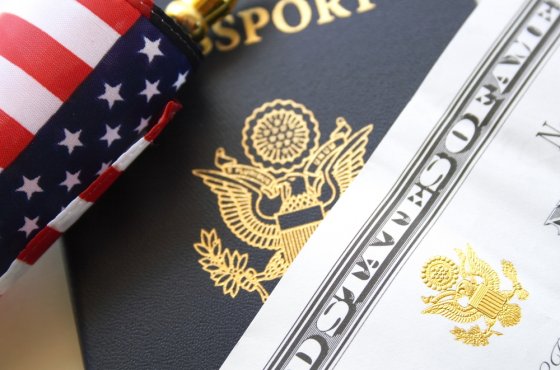Leo attacked a member of the reserve in North Carolina, her body could not be pulled out of the aviary for three hours
Alex Black came face to face with an escaped lion after just 10 days of unpaid internship at a private animal shelter, the Sanctuary Center, located in Burlington, North Carolina.

Фото: Depositphotos
According to her aunt, Virginia Black, an 22-year-old woman cooked deer meat to feed the animals, and suddenly found herself alone with a lion in a place from which he could reach visitors, writes Time.
“Instead of panicking and running away, she tried to calm him down by focusing on herself and trying to distract him with venison,” Black wrote in a letter to North Carolina lawmakers.
“She may have saved other lives that day,” Black added, but her niece lost her life that day. The lion pounced on her, pulling her by the neck through the open gate into his enclosure.
It is unclear how Matthai, a 14-year-old male lion with upper canine teeth measuring 2,5 inches (6 cm) long, escaped from his enclosure. The examination concluded that the ball that hit the goal did not allow it to close. The conservation center insists this conclusion is "implausible" because it is unlikely that a 28-inch (71 cm) diameter lions ball would block the goal, but did not offer an alternative explanation. Outside the steel fencing, the only barrier to the animal's access to the streets is an approximately 4-foot (1,2-meter) high fence that visitors are asked not to lean on for fear it might break.
The attack took place around 11: 15 in the morning, said the sheriff of the County Caswell. Alex's body was not examined until 14: 15.
On the subject: Predatory animals in the USA: how to survive upon meeting
Without having a tranquilizer on hand, the rescuers arriving at the scene sprayed water from the fire hoses in a vain attempt to push the lion back. The center director, Douglas Evans, had a tranquilizer pistol, but he could not charge it.
“When the gentleman tried to assemble the tranquilizer, he was reading the instructions,” Black wrote in her letter to lawmakers, citing a witness she did not name.
Then Evans was still able to charge the gun and twice shot a lion with a tranquilizer darts, but the effect did not follow. Law enforcement officers eventually shot the lion eight times with firearms, the sheriff said.
“It seems clear that if the center had a real plan for how it would respond in such a situation, it was rarely or never implemented. The center apparently quickly decided that she had died and rescuing the lion became a priority,” Black concluded in her letter.
The body of Alex Aviary was immobile, and its status is “unclear” when law enforcement officers arrived, the sheriff said. When they finally got her, an autopsy revealed that she died from blood loss.
Black believes that her niece had a chance to survive if the rescue operation were carried out faster.
Months after what happened last December at the Conservation Center in Burlington, North Carolina, the family of the deceased still questions the safety protocols of this animal shelter.
North Carolina is one of four states in which there are no laws regulating the ownership of large wild animals of the cat family that are not found in the United States. And the rules of the state regarding the ownership of other wild animals are very soft.
Black urged lawmakers to strengthen the bill passed this month, which bans private ownership of large cats, primates, hyenas and bears, but it still will not apply to institutions such as the Conservation Center, which is licensed by the US Department of Agriculture. She wants the state to require such organizations to conduct safety drills, as well as to introduce safety plans approved by law enforcement.
“Refuges and zoos where a person has been killed or injured and an investigation reveals a lack of proper training, equipment and safety protocols should no longer house dangerous wild animals,” she writes.
The center responded to Black’s claims with a brief statement that security measures were thoroughly revised and staff were retrained.
“The Center is confident that if all of its policies and procedures are followed, its guests, staff and animals will be safe,” wrote Mindy Stinner, the organization's executive director.
On the subject: In South Carolina, a two-meter alligator tried to ring the doorbell
A US Department of Agriculture license requires such organizations to undergo inspection and compliance with certain animal welfare and safety rules, and violations may result in fines and, ultimately, license loss. But the US Department of Agriculture allowed regular offenders to continue their activities, and its standards are not as stringent as those required for accreditation by the American Association of Zoos and Aquariums (AZA).
An inspection by the Department of Agriculture in January 2019, a month after Black’s death, found that the center “had no items that didn’t meet the requirements,” the department refused to say if it was conducting an additional investigation.
The center reopened in February, with just a dozen staff members caring for more than 80 animals there. This place is visited annually by more than 16 000 visitors.
“I was surprised when it opened. I just don’t know why it’s enough for them to say: “Look, we changed something” and that’s it,” the aunt of the deceased was indignant.
Her letter had a definite impact: lawmakers made changes to their bill to include a study of security requirements for facilities such as the Preservation Center.
Dan Ash, the executive director of AZA, said that the center contacted a member of the association to give him informal security advice after Black’s death. Such institutions should receive AZA accreditation, he said, calling the Department of Agriculture standards “minimal.”
“If there are dangerous animals in a facility, they should be held to high standards, and the government should be held to high standards,” he said.
Read also on ForumDaily:
911 call rules that can save lives
What happens if we find out when and how we die
How to import a dog in the USA
Salmonellosis, herpes, rabies: whether to kiss pets
Subscribe to ForumDaily on Google NewsDo you want more important and interesting news about life in the USA and immigration to America? — support us donate! Also subscribe to our page Facebook. Select the “Priority in display” option and read us first. Also, don't forget to subscribe to our РєР ° РЅР ° Р »РІ Telegram and Instagram- there is a lot of interesting things there. And join thousands of readers ForumDaily New York — there you will find a lot of interesting and positive information about life in the metropolis.











